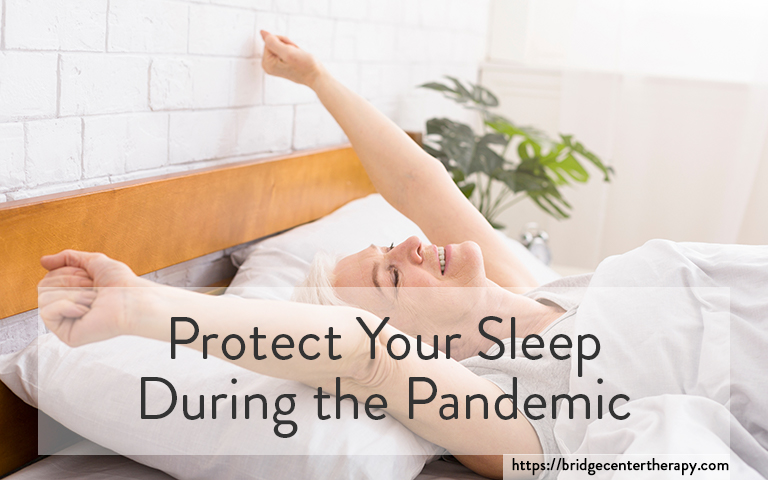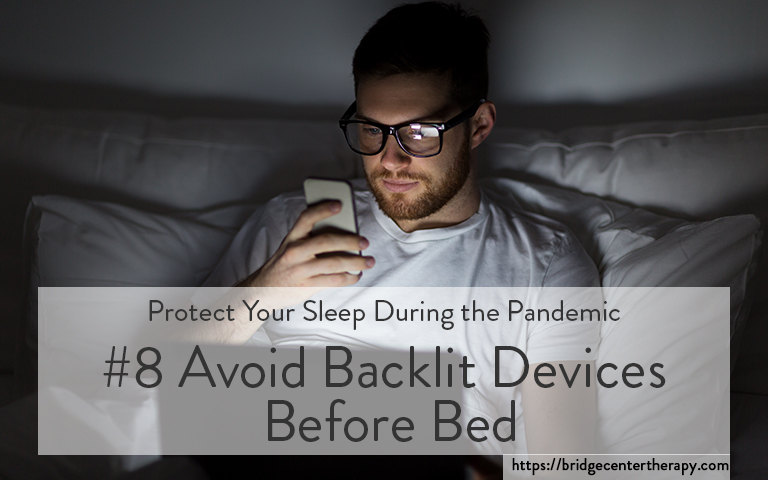
Uncertainty has become our new normal. Between financial worries, fears about the virus, and concern for your loved ones, there are plenty of things that may be keeping you up past your bedtime. A good night’s sleep is paramount for your ability to take on the unknown and your general mental health. It has never been more important. Here are some concrete steps you can take to help you get the rest you need and deserve.
1- Don’t Take Your Worries to Bed
Set aside 20 minutes during the day to write down your worries and problem solve. Be mindful. Take a moment to breathe and bring your attention to the present.
You can get there from here.
2- Exercise
Exercise during the day can help your body fall asleep faster. It ensures a longer sleep duration and better quality sleep.
3- Don’t Drink Excessive Alcohol
Alcohol is not a healthy coping mechanism. Passing out does not lead to good, restful sleep. Alcohol and poor sleep will only diminish your immune system.

If you’re home all day, you may be tempted to take more naps. Short power naps early in the afternoon may be beneficial, but avoid longer naps later in the day.
5- Don’t Avoid Your Feelings
If you don’t deal with your stress while you’re awake, it tends to show up when you’re trying to sleep. Try writing in a journal or talking to a supportive friend or one of our psychologists.
Don’t spend more time than normal in your bedroom. Avoid working, eating and otherwise spending the day in bed. It’s important for your mind to associate your bed with rest.
7- Get Out of Bed if You Can’t Sleep
If you are tossing and turning, do not stay in bed for more than 30 minutes. It is best to get up to do a relaxing activity and return only when you feel sleepy.

8- Avoid Backlit Devices Before Bed
Set your smartphone, tablet and laptop aside at least 30 minutes before bedtime. Bedtime is dark, Bright devices will disturb your biological clock and reduce your sleep quality.
9- Practice Breathing Exercises
Try breathing exercises or guided meditations. Calm your mind by practicing mindfulness on your own or with an app. Relaxation techniques improve sleep quality.
10- Don’t Rely on Sleeping Pills
The easiest solution is often the one that carries the most risk. Prolonged use of chemical sleeping aids can worsen your situation. Adopt a healthy lifestyle rather than resorting to medicating yourself.
Need Help? We Can Help.
Don’t try to change too much all at once. Choose one thing to work on this week. If you fail, be kind to yourself and keep trying. You now have some time to make room for healthy sleep habits that will help you during the pandemic and beyond.
Are you struggling to control your anxiety and stress during the COVID-19 pandemic? Call (510) 497-4174 to schedule a free consultation with one of our psychologists today.
If you have any questions or require more information, please contact Lani here: lani@bridgecentertherapy.com
